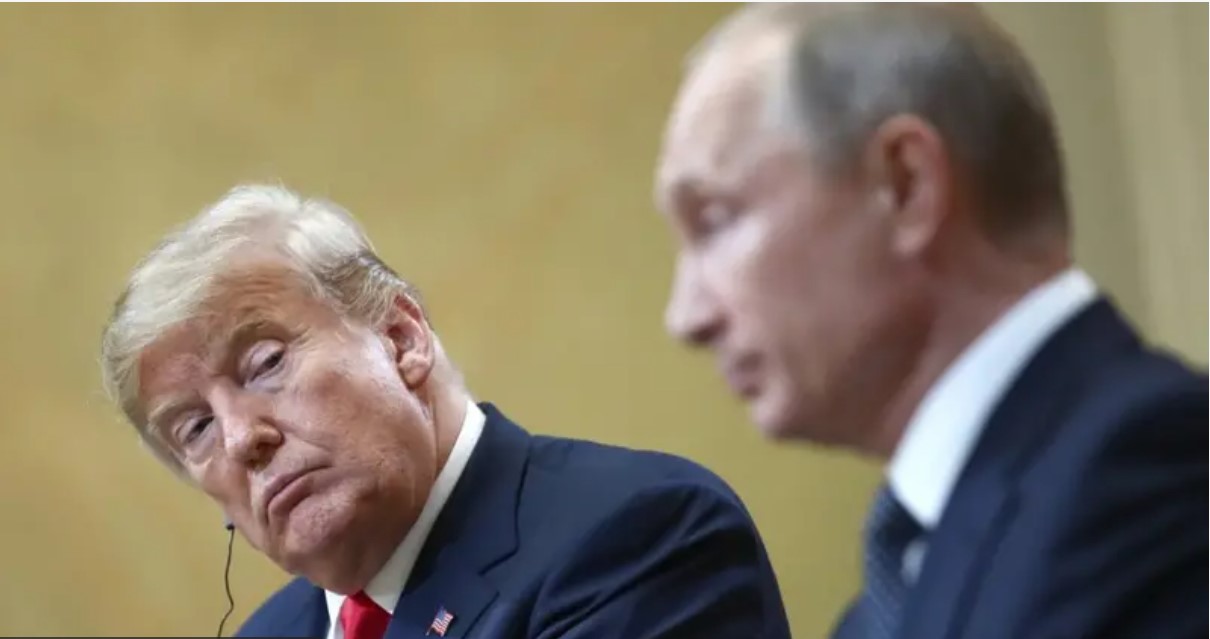French President Emmanuel Macron believes Donald Trump has come to understand that Vladimir Putin was dishonest about Russia’s willingness to pursue peace in Ukraine.
Macron expressed his view that Trump now recognizes Putin’s deception, according to reports from French television channel BFM TV.
“I think that President Trump realizes that when President Putin told him he was ready for peace, he lied to him,” the French head of state said, while calling for the most durable ceasefire possible.
Speaking from Hanoi, Macron characterized the situation in Ukraine as unacceptable and extremely serious.
“One cannot say they are ready to discuss and then bomb,” the French president stated. “This double talk shows the inauthentic character of the discussions that may have taken place.”
The French president joined other European leaders in wanting to establish a deadline for Putin to implement a ceasefire, with the prospect of massive retaliation if that timeline is not met. Macron also noted that Russia’s war destabilizes both Europe and Asia, and expressed hope that Trump’s anger over Russian attacks would translate into concrete action.
Trump says Putin “has gone absolutely crazy” and kills a lot of people “needlessly”
Trump’s response to the 25 May Russian missile and drone attack that killed at least 12 Ukrainian civilians demonstrated a shift in his public stance toward Putin.
In comments to journalists, Trump questioned what had happened to the Russian leader, stating he was killing many people and that he did not approve of such actions.
On his Truth Social platform, Trump escalated his criticism further, writing that Putin had “gone absolutely CRAZY” and was “needlessly killing a lot of people.” The US president described missiles and drones being fired into Ukrainian cities “for no reason whatsoever.”
Despite condemning Putin’s actions, Trump also criticized Ukrainian President Volodymyr Zelenskyy, saying his statements cause problems and demanding they stop. Trump characterized the conflict as a war that would not have occurred under his presidency, calling it “Zelenskyy’s, Putin’s, and Biden’s War.”
Meanwhile, Kremlin spokesperson Dmitry Peskov described the negotiation process as a highly responsible moment that carries emotional weight for all parties involved and generates emotional reactions. He stated that Russia is closely monitoring all responses to the situation and emphasized that Putin makes decisions based on what he considers necessary for ensuring Russia’s state security.
Ukrainian scholar Valerii Pekar responded to Trump’s remarks by challenging what he sees as a fundamental misconception. According to Pekar, Trump’s belief that Putin was previously a good leader who suddenly changed reflects a broader Western misunderstanding about Russia’s political nature.
Pekar argued that Russia never functioned as a democracy, except for a brief transitional period after the Soviet collapse that lasted only until 1993. He described Russia’s political system as historically characterized by predatory authoritarianism, placing Putin within a pattern of rulers including Ivan the Terrible, Peter I, and Stalin.
The scholar warned that viewing Putin’s regime as a temporary deviation from democratic norms could lead to significant geopolitical miscalculations, as this perspective suggests the situation can simply be waited out rather than actively confronted.




